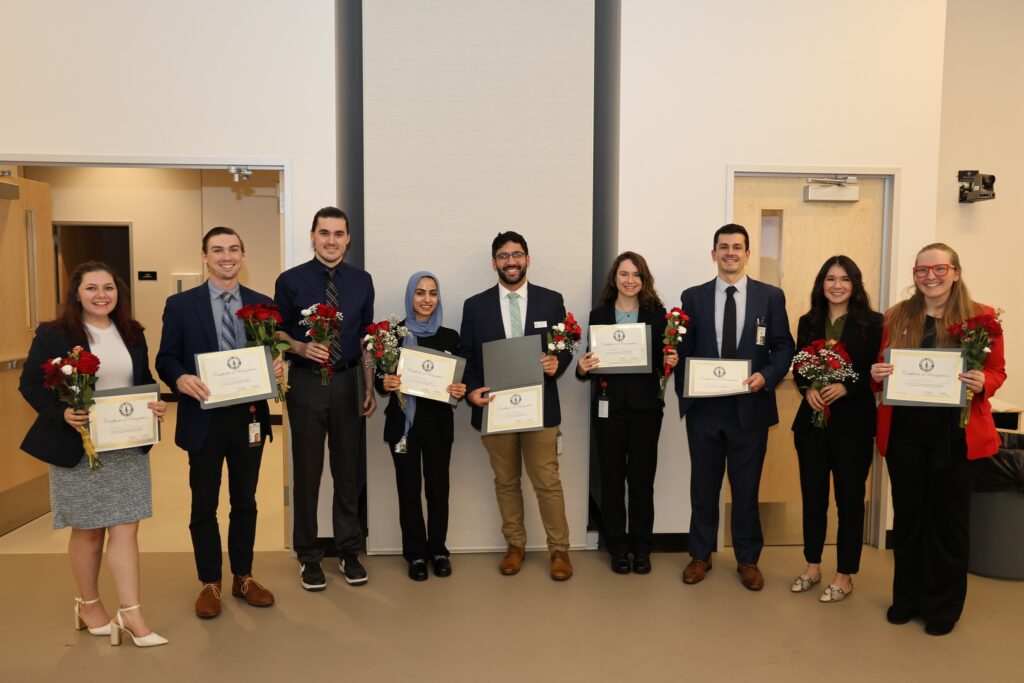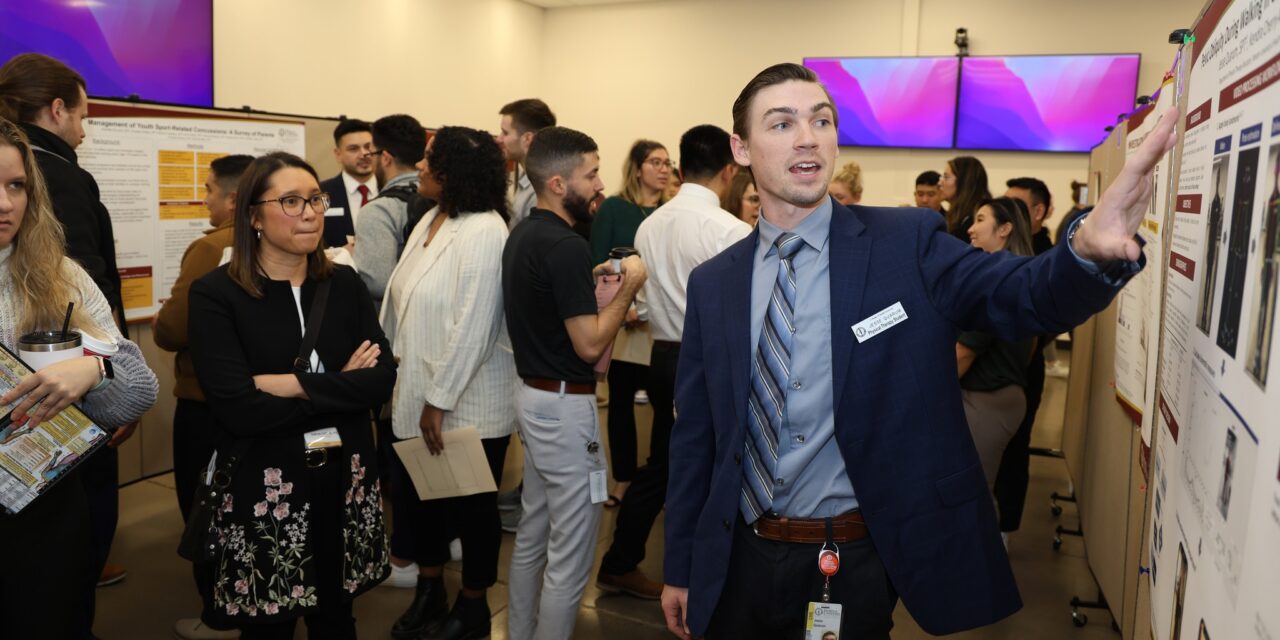The WesternU Oregon Research Club hosted the annual WesternU Oregon Research Symposium on November 3, 2023, giving students the opportunity to share research studies from the past year. Students from COMP-Northwest and CHS-Northwest presented approximately 30 research projects at the event, with four posters to selected to be presented orally.
Click here to learn more and view the posters from the 2023 Research Symposium.
Highlighted Award Winners
CHS-Northwest student Jesse Quarum Awarded First Place
CHS-Northwest student Jesse Quarum, DPT ‘2024, won first place for his poster presentation on Pelvic Obliquity During Walking in Clinic and Home Environments.
This ongoing study aims to 1) compare pelvic obliquity during walking in clinical and home environments and 2) investigate its relationship with fall risk for community-dwelling ambulatory older adults. Recognizing the prevalence of altered pelvic obliquity in older adults and its links with compromised gait, balance issues, and an increased risk of falls, our study takes a novel approach. Traditionally, we’ve relied on crude clinician-observation methods in controlled clinical environments to assess pelvic obliquity. Now, by merging novel pose estimation algorithms with cell phone videos, we can obtain precise 3D kinematics of walking, both in and out of clinical settings. This study deploys this new methodology to explore how the walking environment affects pelvic obliquity and determine its relationship to fall risk.
Jesse expressed enthusiasm about the potential impact of the study’s findings on rehabilitation methods stating, “Human pose estimation technology provides an opportunity to see how people are walking in their daily lives, something that has been impossible to directly quantify until now. Identifying changes in pelvic obliquity during home walking may prompt physical therapists to modify their gait assessment methods. Moreover, understanding the relationship between pelvic obliquity and fall risk can inform targeted interventions for pelvic stability to ultimately reduce falls.”
Jesse added, “Collaborating with Dr. Kendra Cherry-Allen continues to be such a rewarding experience, and I am eagerly anticipating the results as our research unfolds.”
COMP-Northwest Students Anna Mikami and John Petrucci Awarded First Place
COMP-Northwest students Anna Mikami and John Petrucci presented on cardiac sympathetic hyperinnovation in a mouse model of carcinoid disease at the WesternU Oregon Research Symposium, this past November, and earned first place at the symposium.
Dr. Brian Delmonaco, a Samaritan doctor who judged the presentations, commented that their presentation showed “elegant use of fluorescent microscopy of heart muscle”.
“Most studies regarding carcinoid heart disease typically focus on valvular dysfunction, but another common thing seen in carcinoid heart disease is cardiac arrhythmias, and this is typically studied less often,” Mikami said. “We wanted to figure out what is causing the cardiac arrhythmias, so we created a mouse model of carcinoid disease to see if there was increased sympathetic nerves in the heart, which we did find and suspect could be a cause of arrhythmias.”

First- and second-place winners of different categories at the WesternU Oregon Research Symposium are, from left: Natalijah Miller, Jesse Quarum, Brent Marsonette, Abrag Nassar, Arman Ameripour, Jenessa Olson, John Petrucci, Anna Mikami and Katelyn Williamson. Photos by Sarah Brown


